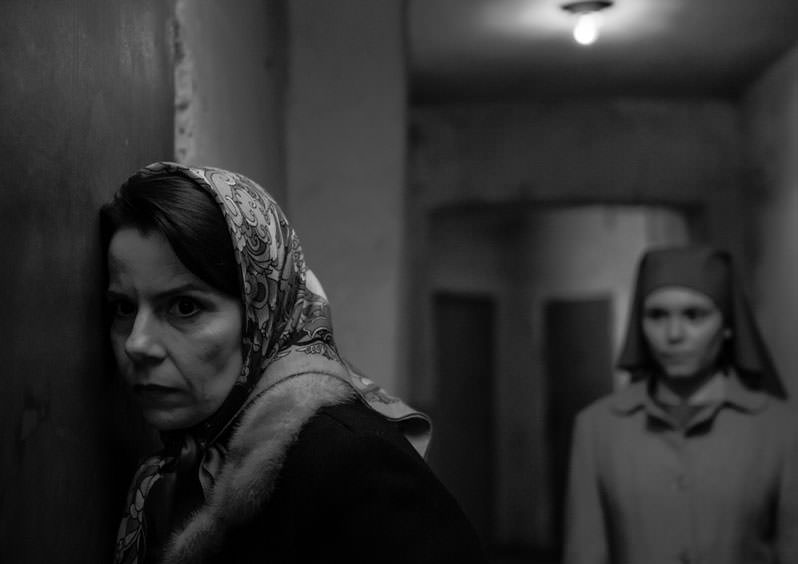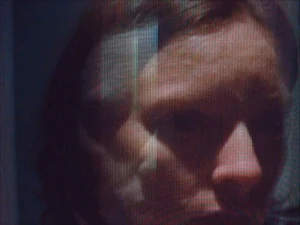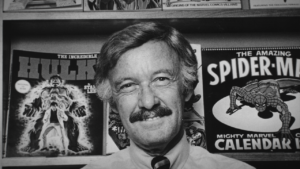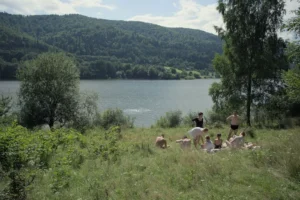This Unexpected Movie Just Won’t Leave Me Alone
"Ida" is a strangely haunting movie -- for a failure For all its faults, it's taken up something like permanent residence in my brain"Ida" is a strangely haunting movie—for a failure. Wanda (Agata Kulesza) and Ida/Anna (Agata Trzebuchowska) in "Ida." Courtesy of Music Box Films
Wanda (Agata Kulesza) and Ida/Anna (Agata Trzebuchowska) in "Ida." Courtesy of Music Box Films
“Ida” is a strangely haunting movie — for a failure. It is set in Poland in 1962. It is shot in black and white in the 1:1:37 aspect ratio that at one time was the industry standard, but has for a long time been disused. It is only 80 minutes long and tells the story of the title character, played by Agata Trzebuchowska. She is a postulant nun, just a couple of weeks from taking her vows, who discovers she is not the Catholic she thought she was, but rather a Jew.
It turns out that she has one relative, an Aunt Wanda (Agata Kulesza), a public prosecutor who takes a certain grim satisfaction in the number of people she has sent to jail (or worse). Ida goes to meet with this woman, who is nearing the end of her looks and of her hopes. She smokes, she listens to music, she accompanies the younger woman on a rather desultory search of their past, which may (or may not) hold some clues to their future. Jazz (Coltrane) is played, drinks are consumed and life creeps on without a lot of hope.
This is a “serious” and glum film. The skies are, of course, always gray and the mood is always grim. The director, Pawel Pawlikowski, whose previous work is unknown to me, is a Pole who has worked in both documentaries and features, mostly out of England. He is a gifted pictorialist, though scarcely a fun guy. In point of fact, he seems to be a depressive and “Ida,” were it even two minutes longer, would probably be unbearable. I guess he’s aiming at some sort of existential mystery and kind of missing that boat.
That leaves this question: Why are we so riveted by this somber effort — at least while we are in the theater — and caught in its grip? There is, to be sure, a certain dark lyricism in the film, which is impeccably made. There is a religious strain to it as well — the way Catholics treated Jews in Poland is explored (it seems to arise from excesses of devoutness). The picture comes to life when Wanda’s anger and resentment surface, which is quite often.
Yet, as I said at the outset, it is a failure. Somehow, the sweetness of Ida is not powerful enough to carry us across to full sympathy with her. And Wanda’s bleakness of spirit doesn’t quite give the film the energy it needs. There is something whiny about it at times, and yet it’s kind of a briar patch of a movie. It snags at you. One thinks sometimes that Pawlikowski is possibly trying too hard, that his better nature wants to break free of his obligation to the rat’s nest he has woven here. I don’t suppose there’s a genial spirit struggling to take flight. But as he wrestles with his topic, you can’t help but be drawn into the film, almost against your will. There are movies like that — gnarly, messy, problematic — which you know you’re going to keep thinking about when you’d rather be gnawing on something else.
One good critic has said he’s going to be seeing it “again and again” — not, I dare say, for the fun of it. I don’t know if I’m willing to go that far. But I guess it’s taken up something like permanent residence in my brain. That means it may not be, come to think of it, a failure at all. It’s just — well — different, unexpected. That’s no bad thing, and could prove to be a good thing. We’ll see, won’t we, as the years wind on?
Dig, Root, GrowThis year, we’re all on shaky ground, and the need for independent journalism has never been greater. A new administration is openly attacking free press — and the stakes couldn’t be higher.
Your support is more than a donation. It helps us dig deeper into hidden truths, root out corruption and misinformation, and grow an informed, resilient community.
Independent journalism like Truthdig doesn't just report the news — it helps cultivate a better future.
Your tax-deductible gift powers fearless reporting and uncompromising analysis. Together, we can protect democracy and expose the stories that must be told.
This spring, stand with our journalists.
Dig. Root. Grow. Cultivate a better future.
Donate today.







You need to be a supporter to comment.
There are currently no responses to this article.
Be the first to respond.